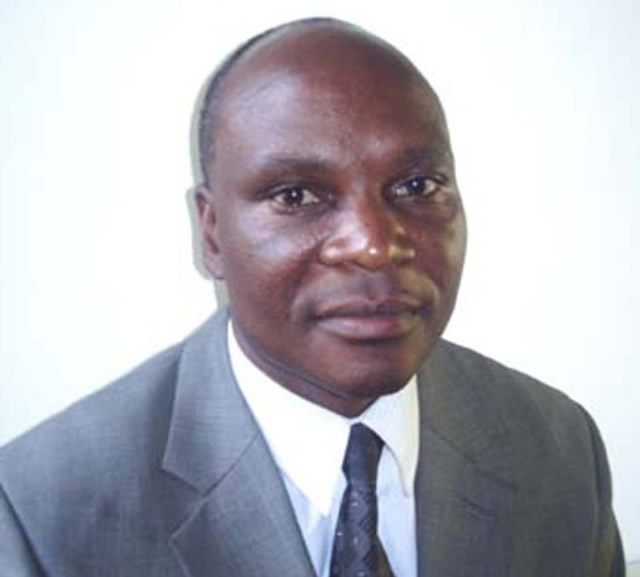Fatherhood and traditional marriage


Today’s fathers have tough choices to make: be with the family all the time or look for food for the family. National Fatherhood Initiative (NFI) has named Dwayne Wade a recipient of a 2011 Fatherhood Award for his dedication to his two sons
Dr Sekai Nzenza
Beaming with the joy, Philemon held his baby and announced that his Shona name was Nhamo, meaning poverty and his Christian name, rechiKristu, was Claudius.
“Both these names belong to my late father. He died when I was only five and today, he has been reborn.” We all clapped hands and ululated. Shamiso, the baby’s mother, said nothing because we already knew that she had named him Prince.
Philemon is our niece Shamiso’s husband. Shamiso is the one who went to Harare some time last year to look for work and ended up living with Philemon. As Shamiso’s aunts, vana tete, Piri and I asked Philemon to do what was right by our family and pay lobola, the bride price for Shamiso. Unless he did that, we told him that she was not allowed to live with him.
We took Shamiso back to the village in October. Within a month, Philemon and his relatives followed and paid US$1 000 for lobola, promising to come back another time with the rest of the cows.
For a guy who made his living selling airtime, phone car chargers and fake designer sun glasses, Philemon did well. His grandmother had also helped him raise the lobola money by selling one of her cows.
Since Philemon was old enough to chase after girls, she had asked him to choose a woman who would make a good daughter-in-law and companion.
We had not seen or heard from Philemon since early December. According to Shamiso, there was some communication between them around New Year. Since then she had lost contact with him because she got caught in the rain coming from the clinic and her cellphone died when water got into it, even though she had tried very hard to secure a dry place for the phone inside the cup of her bra.
Philemon sat on the bench in the kitchen hut holding his baby. There was VaNyamukuta, the traditional village birth attendant or midwife who had delivered Shamiso, Shamiso’s mother, two other women and my cousin Piri, of course. We were gathered for the traditional VaNyamukuta’s lunch, sadza remachembere. This was also to celebrate the safe arrival of the baby. Shamiso’s mother had taken hours to pound, roast and then grind the red millet to make special sadza for VaNyamukuta and the new mother. Then she killed a big chicken and cooked it without adding any onion or tomatoes, just a little home grown chili and salt.
VaNyamukuta dished the hot sadza in small potions, placing them in the round winnowing basket, murusero, as is the tradition. We ate in two’s and three’s, with Shamiso getting the whole back of the chicken because she deserved it for having given birth.
When Philemon arrived, our sadza remachembere was already over and we were all full and relaxed. Piri was on her first warm beer because all the ice we had brought from Harare the day before had melted. It was late in the afternoon and outside, it was pouring with raining.
Philemon lifted the baby in the air and gazed at his angelic little face. Then Philemon pouched his lips and gently kissed the baby right on the mouth. The baby mistook his father’s top lip for a nipple and hungrily sucked it.
“Don’t kiss the baby with your beer mouth,” said Piri.”
“You come now, three weeks after the baby is born. Where were you? What if Shamiso had died in child birth and the baby too?” There was an easy joking tone to her voice, but we all knew that she meant what she was saying.
It was as if Piri had opened the way for the other women to scold Philemon for his irresponsible behaviour.
VaNyamukuta said Philemon should not have been shown the baby until he had paid a fine for his negligence and lack of care.
“What kind of man are you? Shamiso came back here just after the rains arrived at the end of November, before we planted any maize. Now the maize crop is almost dry and that is how long it has taken you to check on your wife.”
Philemon sat there looking very much like a city boy, wearing white heavy brown boots, blue jeans, a red shirt and a brown leather jacket. His blue base ball cap was on the bench next to him because it is disrespect to wear a hat inside the house.
VaNyamukuta said these days men no longer care about marriage or children. What excuse did Philemon have for forgetting about his wife?
With some embarrassment or shyness confronted by all the women, Philemon explained that life had not been very easy for him in Harare. As it was, he only managed to get to Bocha to see his grandmother at Christmas. Where would he have got the money to come here?
I saw the same sadness that I had seen in Philemon’s eyes the day Piri and I took Shamiso away from him.
Here was a young man of no more than 24, orphaned very young and brought up by his grandmother.
He struggled through school due to lack of school fees and still managed to pass six subjects in Form Four. There was no money for him to go any further. He stayed home for two years helping his grandmother in the fields and caring for the two orphans left behind when his unmarried sister died.
He then moved to Harare, the big city, looking for work. Apart from selling airtime, Philemon helped glue and sew shoes for a friend who sat under a tree on one of the Harare streets.
Two years later, Philemon succeeded to make enough money and rent a small room on his own in Glen Norah. That was when he met Shamiso and they fell in love. Desperate for work and accommodation, Shamiso quickly moved in with him.
VaNyamukuta shook her head sadly at Philemon and said, “So, if life is so hard in town, why don’t you go back home? There must good land in your village still. A good man is one who can look after his family. These days, our sons are failing to do that. So, what makes them men?” Chii chinoita kuti vachinzi varume?
“Who knows?” Piri said, stretching her legs towards the fireplace, leaning back against the hut wall and picking her teeth with a piece of grass.
She yawned and said that in the old days, a good man was the one who owned his own homestead, fields, cattle, goats, a huge granary and lots of children possibly from one, two or more wives.
These days, there is so much unemployment and many are struggling to be men. Then there are young girls like our Shamiso shunning their husbands’ village because they cannot handle the hard work expected of daughters-in-law.
Shamiso remained quite all the time, looking down and occasionally stealing looks at Philemon and the baby. Still under twenty, Shamiso sat there, looking pretty, tiny, very light skinned and fragile. Then the baby cried a little. Philemon handed him over to Shamiso. With such an easy manner, like she had been breastfeeding forever, Shamiso attached the baby on to the breast and he hungrily sucked away.
“I would like Shamiso to return to my village. When she is strong enough, tete here can drive Shamiso and baby home,” Philemon said, pointing at me.
We had gone down that path before and I was not going all the way to Bocha again with a reluctant and sobbing Shamiso.
“I want to stay here,” Shamiso said suddenly. “I am not going to Bocha.”
Then we all looked at each other and VaNyamukuta coughed uncomfortably and shook her head. But Shamiso did not stop there.
“Why should I go and live with Philemon’s grandmother? I did not marry her. I married him. When he makes better money and has a bigger place, I shall move to Harare and live with him.”
It was like a declaration. Our image of Shamiso living back in the village controlling a whole homestead as maiguru, big mother, faded away. This girl was determined to live in the city. The village was a thing of the past. How then, do you tell a young girl to obey a tradition that worked well in the past and is beginning to see its dying days?
- Dr Sekai Nzenza is the Chief Executive of The Rio Zim Foundation.









Comments